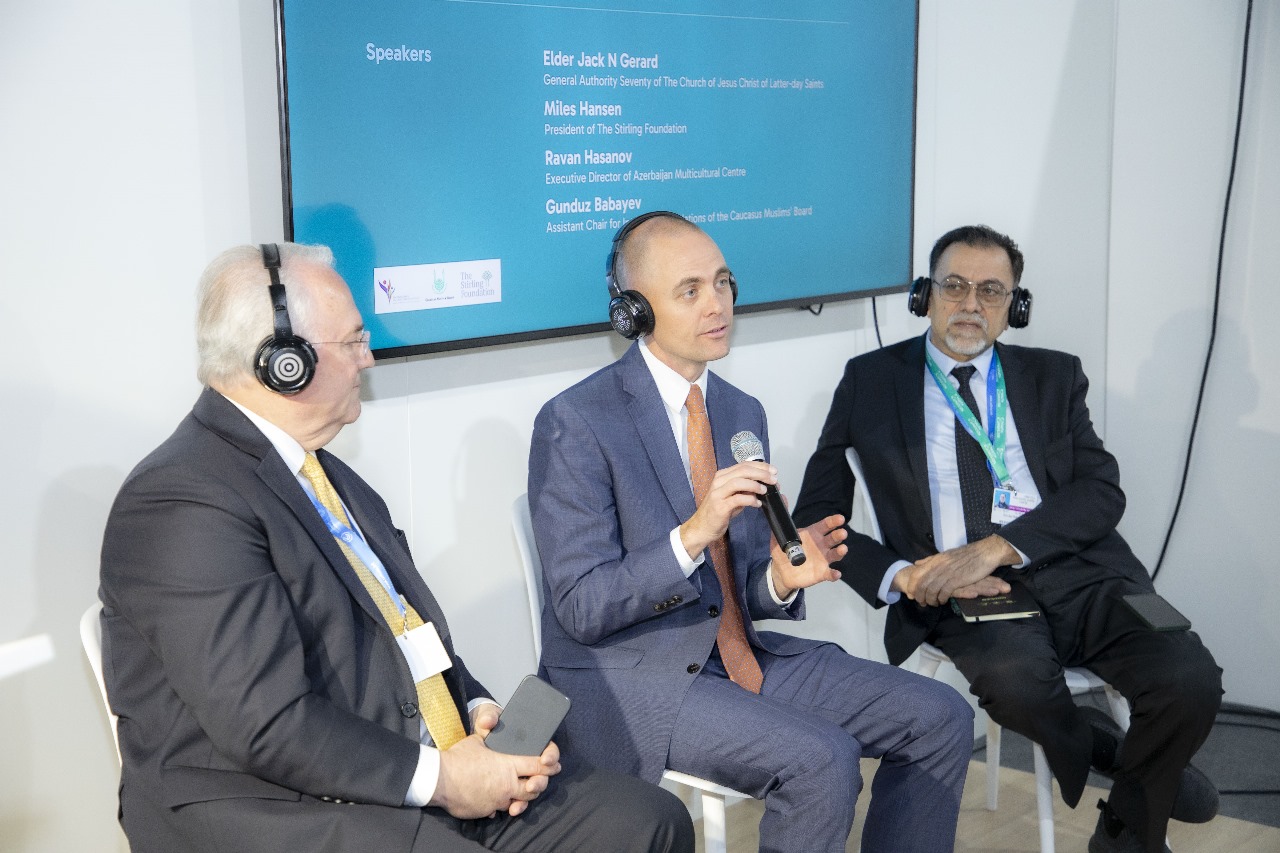Exploring Interfaith Collaboration for Earth Stewardship, Sustainable Lifestyles, and Adaptation Financing in Developing Countries: Sessions from Day One of the Faith Pavilion at COP29
Today marked the opening of the Faith Pavilion at COP29, organized by the Muslim Council of Elders, with over 97 organizations from 11 diverse religions and denominations participating. The pavilion provides a platform for religious and ethical perspectives to strengthen climate action efforts.
Delivering the day’s keynote speech, Professor W. Cole Durham Jr., President of the G20 Interfaith Forum, emphasized the urgent need for a dedicated Faith Pavilion at COP events to amplify calls for action and foster awareness, both crucial for meeting the conference's objectives and outcomes. He highlighted that values of respect and stewardship are fundamental human principles that underpin much of the work within the environmental sphere.
The first session, "Interfaith Collaboration in Action: Stewardship of the Earth," focused on the responsibility of religious communities to ensure their followers are aware of the importance of protecting the earth and its resources. Speakers shared how learning and applying core religious principles can build bridges of communication and influence behaviors that support environmental preservation. Humanity, they affirmed, must act to save the earth and prevent the natural disasters that claim countless lives globally.
The second session, "Ethics, Inclusiveness, and Participation," presented effective practices for sustainable adaptation planning led by faith organizations. Speakers emphasized that COP conferences are essential platforms for sharing best practices in climate resilience, particularly for developing countries that rely on adaptation planning. They noted that adaptation financing is a critical need for these countries, pointing out that while developed nations have pledged to double their contributions, these commitments remain unfulfilled, creating significant gaps that impede climate action programs.
In the third session, "Encouraging Sustainable Lifestyles through Faith," speakers underscored the importance of giving nature a chance to recover, as seen during the COVID-19 pandemic, when the earth showed signs of regeneration in the absence of human interference and highlighted the gap between intentions and actions regarding the environment, which continues to hamper conservation efforts. This session called for an active role from faith leaders to inspire individuals and communities to adopt sustainable practices for the environment.
Running from November 12 to 22, the Faith Pavilion builds on the success of its first edition at COP28, held last year in the United Arab Emirates. With over 40 discussion sessions, the pavilion will focus on interfaith collaboration for environmental stewardship, sustainable adaptation practices led by faith communities, promoting sustainable lifestyles through religious values, addressing non-economic impacts of climate change, improving access to loss and damage funding, advocating for local accountability mechanisms, and promoting inclusive climate justice for all.

